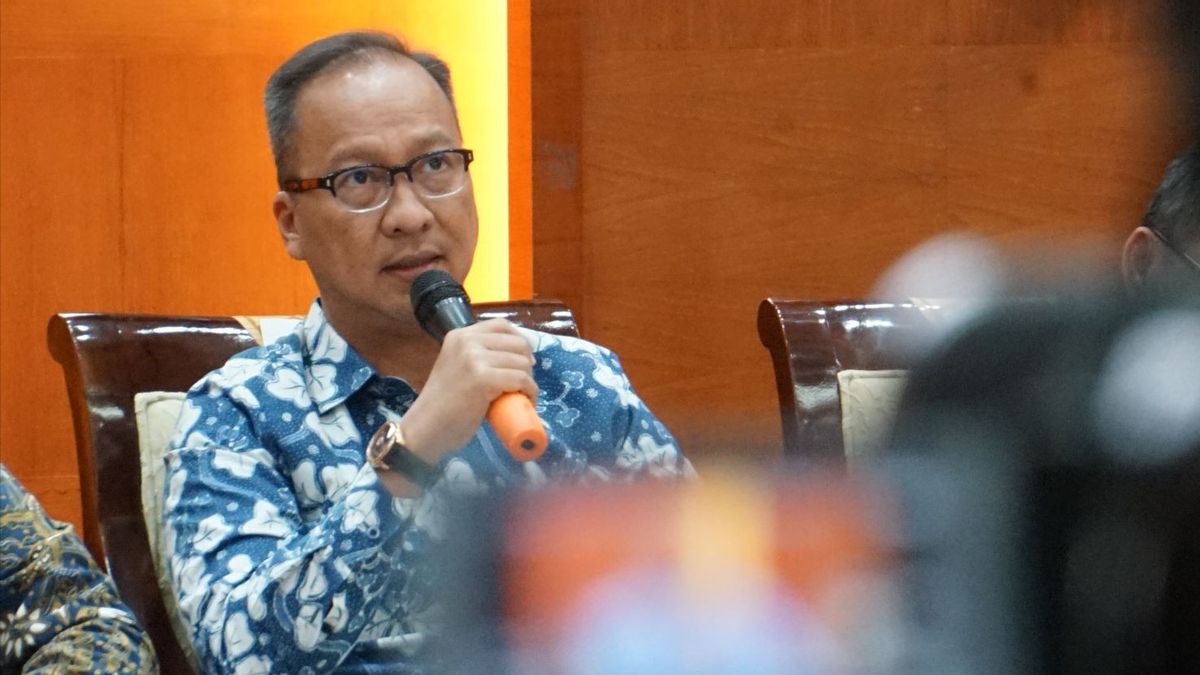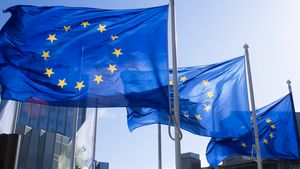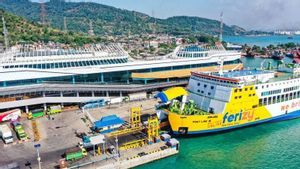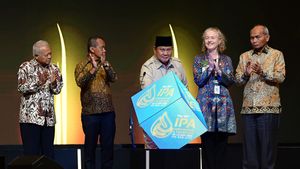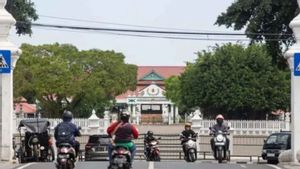JAKARTA - The government is prioritizing the development of an export-oriented industrial sector. This effort is deemed to be able to fix current economic structural problems, namely the trade balance deficit and the current account deficit.
"We know that the contribution of the manufacturing industry sector is still dominating the national export value achievement. So, this is one of the points for the government to pay special attention to the development of the manufacturing industry sector, "said Industry Minister Agus Gumiwang Kartasasmita in a statement received, Friday, January 17.
Referring to data from the Central Statistics Agency (BPS), in the January-December 2019 period, exports of processing industrial products were able to penetrate up to US $ 126.57 billion or contribute 75.5 percent to Indonesia's total exports which touched US $ 167.53 billion. the whole last year.
"We already have a road map for Making Indonesia 4.0, which is our strategy for preparing to enter the industrial era 4.0. Through this roadmap, we will also increase 10 percent of the contribution of net exports to GDP, "said the Minister of Industry.
Therefore, the Ministry of Industry has mapped 15 sectors that will receive priority development to boost their export performance. The 15 potential sectors, namely the palm oil processing industry and its derivatives, the food industry, the paper and paper goods industry, the crumb rubber, tires and rubber gloves industry, the wood and wood products industry, as well as the textile and textile products industry. .
Furthermore, the footwear industry, the cosmetics industry, soap and cleaning materials, the four-wheeled motor vehicle industry, the electric cable industry, the iron pipe and pipe connection industry, the agricultural machine tool industry, the consumer electronics industry, the jewelry industry, and the handicraft industry.
"There are several challenges that need to be addressed immediately so that our industry can be more competitive, including maintaining the availability of raw materials and components. Then, deepen the industrial structure, optimize the level of domestic content (TKDN), and continue to encourage the development of industrial estates including IKM centers, "he said.
Agus added that his ministry is also focused on attracting investment in the industrial sector that produces imported substitution products and continues to implement industrial downstream policies. "To overcome the trade balance deficit in the industrial sector, it can also be through import substitution and downstreaming," he explained.
The strategic steps taken include the mandatory implementation of the B-30. This could provide foreign exchange savings of US $ 4.8 billion while ensuring the availability of bio-diesel fuel. Another step is the development of R&D for the pharmaceutical industry with the aim of producing drugs for national needs and reducing imports of medicinal raw materials.
Furthermore, strengthening the Trans Pacific Petrochemical Indotama (TPPI) in order to reduce imports of petrochemical products and save foreign exchange up to US $ 1 billion per year. Next, the development of coal gasification in Peranap and Tanjung Enim to reduce dependence on imports of polypropylene and LPG.
Then, the development of export-oriented horticulture to help grow the capacity of the concentrate industry in the country and boost export performance. In addition, the operation of the Green Refinery in Plaju is to produce green diesel and reduce dependence on imported fuel.
"We also focus on encouraging the development of a stainless steel-based industry in Morowali in order to increase the added value of domestic mineral raw materials," said the Minister of Industry, Agus.
In fact, the development of petrochemical industry investment in Cilegon and Merak, Banten is also being carried out to reduce dependence on imports of petrochemical products and accelerate the development of petrochemical industrial areas in Bintuni Bay.
The English, Chinese, Japanese, Arabic, and French versions are automatically generated by the AI. So there may still be inaccuracies in translating, please always see Indonesian as our main language. (system supported by DigitalSiber.id)
